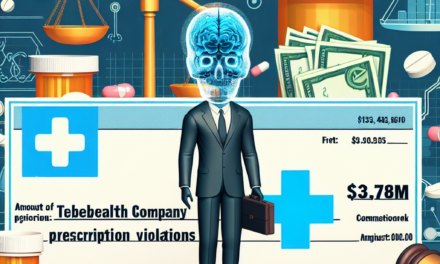FDA Job Cuts: Experts Warn of Widespread Consequences
The U.S. Food and Drug Administration (FDA) plays a crucial role in safeguarding public health by regulating food, drugs, medical devices, and other products. However, recent announcements regarding significant job cuts within the agency have raised alarms among experts, stakeholders, and the public. This article delves into the potential ramifications of these job cuts, exploring various aspects such as regulatory efficiency, public health implications, industry impact, workforce morale, and the future of FDA operations.
Understanding the Context of FDA Job Cuts
To comprehend the implications of the FDA’s job cuts, it is essential to understand the context in which these decisions are being made. The FDA has faced budget constraints and increasing demands for oversight, leading to a challenging environment for its workforce.
The Budgetary Landscape
The FDA’s budget has been a topic of contention in recent years. With increasing pressure to manage public health crises, such as the COVID-19 pandemic, the agency has seen its responsibilities expand significantly. However, funding has not kept pace with these demands. In fiscal year 2023, the FDA’s budget was approximately $6.5 billion, a figure that many experts argue is insufficient given the agency’s expanding role.
Budget cuts have been proposed as a solution to address the federal deficit, and the FDA has not been immune to these pressures. The proposed job cuts are part of a broader strategy to streamline operations and reduce costs. However, experts warn that such measures could have dire consequences for public health and safety.
Regulatory Efficiency and Oversight
One of the primary functions of the FDA is to ensure that products are safe and effective for public use. Job cuts within the agency could lead to a decrease in regulatory efficiency, resulting in longer review times for new drugs and medical devices. This slowdown could have several consequences:
- Delayed Access to Treatments: Patients may experience delays in accessing new therapies, particularly for serious conditions where time is of the essence.
- Increased Risk of Unsafe Products: With fewer staff to conduct thorough reviews, there is a heightened risk that unsafe or ineffective products could reach the market.
- Backlog of Applications: A reduction in workforce could exacerbate existing backlogs, further delaying the approval process.
Experts argue that the FDA must maintain a robust workforce to fulfill its mission effectively. A study by the National Academy of Sciences found that a well-staffed FDA is crucial for timely drug approvals and maintaining public trust in the regulatory process.
Public Health Implications of Job Cuts
The potential public health implications of FDA job cuts are profound. The agency’s role in monitoring food safety, drug efficacy, and medical device performance is critical to preventing health crises.
Food Safety Oversight
The FDA is responsible for ensuring the safety of the nation’s food supply. Job cuts could lead to reduced inspections and oversight of food production facilities, increasing the risk of foodborne illnesses. According to the Centers for Disease Control and Prevention (CDC), approximately 48 million Americans suffer from foodborne illnesses each year, resulting in 128,000 hospitalizations and 3,000 deaths.
With fewer inspectors, the FDA may struggle to keep up with the growing complexity of the food supply chain, which includes imported foods and new food technologies. This could lead to:
- Increased Outbreaks: A decline in inspections may result in more frequent outbreaks of foodborne illnesses.
- Public Distrust: Consumers may lose confidence in the safety of the food supply, leading to economic repercussions for the food industry.
- Higher Healthcare Costs: Increased illness rates could lead to higher healthcare costs for individuals and the government.
Drug Approval and Monitoring
The FDA’s role in drug approval is vital for ensuring that new medications are safe and effective. Job cuts could hinder the agency’s ability to conduct thorough reviews and post-market surveillance. This could have several consequences:
- Increased Adverse Events: A lack of adequate monitoring could lead to an increase in adverse drug reactions going unreported.
- Public Health Risks: The introduction of unsafe drugs could pose significant risks to public health, particularly for vulnerable populations.
- Loss of Innovation: A slower approval process may discourage pharmaceutical companies from investing in new drug development.
Experts emphasize that maintaining a strong workforce is essential for the FDA to fulfill its mission of protecting public health. A report from the FDA Science Board highlighted the need for adequate staffing to ensure timely drug approvals and effective post-market surveillance.
Impact on the Pharmaceutical and Medical Device Industries
The pharmaceutical and medical device industries are heavily reliant on the FDA for product approvals and regulatory guidance. Job cuts within the agency could have significant repercussions for these industries.
Delays in Product Launches
With fewer staff members to review applications, companies may face delays in bringing new products to market. This could have several implications:
- Financial Losses: Delays can lead to significant financial losses for companies, particularly for those with products that are time-sensitive.
- Competitive Disadvantage: Companies may find themselves at a competitive disadvantage if their products are delayed while competitors receive approvals.
- Investor Confidence: Prolonged approval times may erode investor confidence in the pharmaceutical sector.
For example, a recent analysis by the Biotechnology Innovation Organization (BIO) found that delays in FDA approvals could cost companies millions in lost revenue. The report emphasized the need for a well-resourced FDA to support innovation in the industry.
Regulatory Guidance and Support
The FDA provides essential guidance to companies regarding regulatory requirements and best practices. Job cuts could limit the agency’s ability to offer this support, leading to:
- Increased Compliance Issues: Companies may struggle to navigate complex regulations without adequate guidance, leading to compliance issues.
- Higher Costs: Increased compliance challenges can result in higher costs for companies, which may be passed on to consumers.
- Stifled Innovation: A lack of regulatory support may stifle innovation, as companies may be hesitant to invest in new products without clear guidance.
Industry experts argue that a well-resourced FDA is essential for fostering a thriving pharmaceutical and medical device sector. A report from the Pharmaceutical Research and Manufacturers of America (PhRMA) highlighted the importance of regulatory clarity in promoting innovation and investment in the industry.
Workforce Morale and Retention Challenges
The announcement of job cuts can have a significant impact on workforce morale within the FDA. The agency’s employees are dedicated professionals who play a critical role in protecting public health. However, uncertainty about job security can lead to several challenges.
Employee Morale and Productivity
Job cuts can create a culture of fear and uncertainty among employees. This can lead to decreased morale and productivity, as employees may feel demotivated and undervalued. Some potential consequences include:
- Increased Turnover: High levels of stress and uncertainty may lead to increased turnover rates, further straining the agency’s resources.
- Loss of Institutional Knowledge: Experienced employees may leave the agency, resulting in a loss of valuable institutional knowledge.
- Decreased Job Satisfaction: Employees may feel less satisfied with their jobs, leading to lower overall productivity.
A study by the American Psychological Association found that job insecurity can lead to decreased job satisfaction and increased turnover intentions. This is particularly concerning for an agency like the FDA, where experienced staff are essential for effective regulatory oversight.
Recruitment Challenges
Job cuts can also hinder the FDA’s ability to attract new talent. The agency competes with other organizations for skilled professionals, and uncertainty about job security may deter potential candidates. This could lead to:
- Difficulty Filling Positions: The FDA may struggle to fill critical positions, further exacerbating staffing shortages.
- Loss of Diversity: A lack of recruitment efforts may lead to a less diverse workforce, which can impact the agency’s ability to address public health issues effectively.
- Long-Term Implications: A diminished workforce may have long-term implications for the agency’s ability to fulfill its mission.
Experts emphasize the importance of maintaining a positive work environment to attract and retain talent. A report from the FDA’s Office of Workforce Development highlighted the need for a supportive workplace culture to foster employee engagement and retention.
The Future of FDA Operations
The future of FDA operations is uncertain in light of proposed job cuts. As the agency faces increasing demands for oversight and regulation, it must navigate a challenging landscape.
Adapting to New Challenges
The FDA must adapt to new challenges, including emerging technologies, evolving public health threats, and changing consumer expectations. Job cuts could hinder the agency’s ability to respond effectively to these challenges. Some potential areas of concern include:
- Emerging Technologies: The rise of digital health technologies and personalized medicine requires the FDA to develop new regulatory frameworks. A reduced workforce may limit the agency’s capacity to address these innovations.
- Public Health Crises: The COVID-19 pandemic highlighted the need for rapid responses to public health emergencies. Job cuts could impede the FDA’s ability to respond effectively to future crises.
- Consumer Expectations: As consumers become more informed and engaged, the FDA must adapt its communication strategies. A lack of resources may hinder the agency’s ability to engage with the public effectively.
Long-Term Consequences for Public Health
The long-term consequences of FDA job cuts could be significant. A weakened agency may struggle to fulfill its mission of protecting public health, leading to:
- Increased Health Risks: A decline in regulatory oversight could result in increased health risks for the public.
- Loss of Public Trust: Erosion of public trust in the FDA could have lasting implications for the agency’s credibility and effectiveness.
- Economic Consequences: A weakened FDA could have economic repercussions for the pharmaceutical and medical device industries, impacting innovation and investment.
Experts warn that the consequences of job cuts could extend beyond the agency itself, affecting public health outcomes and the economy as a whole. A report from the Institute of Medicine emphasized the importance of a well-resourced FDA in ensuring the safety and efficacy of medical products.
Conclusion: The Need for a Balanced Approach
The proposed job cuts at the FDA raise significant concerns about the agency’s ability to fulfill its critical mission of protecting public health. As experts warn of widespread consequences, it is essential to consider the long-term implications of these decisions.
Maintaining a well-resourced FDA is crucial for ensuring regulatory efficiency, safeguarding public health, supporting industry innovation, and fostering a positive work environment. As the agency faces increasing demands and challenges, a balanced approach that prioritizes adequate staffing and resources is essential for its continued effectiveness.
In summary, the potential consequences of FDA job cuts are far-reaching, impacting not only the agency itself but also public health, industry innovation, and workforce morale. As stakeholders advocate for a more sustainable approach, it is imperative to recognize the vital role that the FDA plays in safeguarding the health and well-being of the American public.





